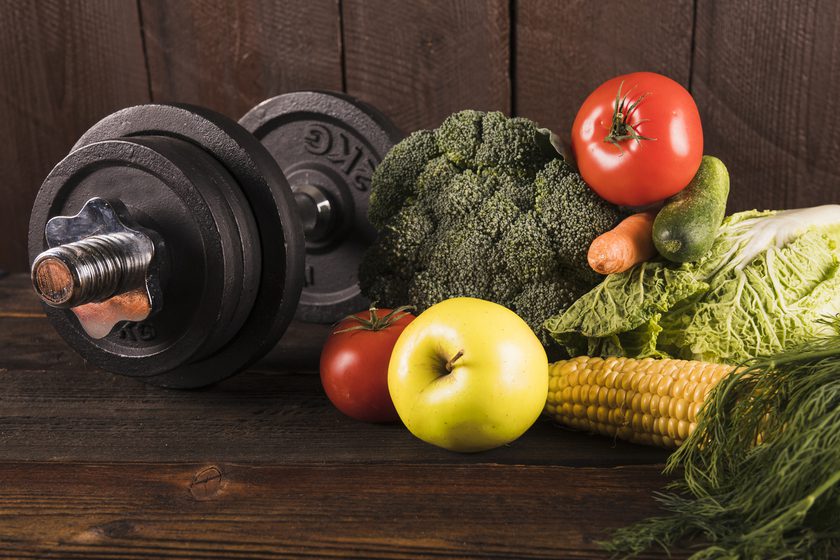Introduction
Lifting weights is only half the equation. If you’re serious about building muscle, improving strength, or toning your body, nutrition is just as important as your workouts. The right foods give your body the fuel it needs to train harder, recover faster, and build lean muscle.
In this guide, we’ll break down everything you need to know about nutrition for strength training—including what to eat before and after workouts, how much protein you really need, common mistakes to avoid, and a full sample meal plan.
Why Nutrition Matters for Strength Training
Strength training places stress on your muscles, creating small tears in the fibers. During recovery, your body repairs and rebuilds those fibers—making them stronger. But this only happens if your body has the nutrients it needs.
Without proper fuel, you may experience:
- Slower muscle growth
- Poor recovery
- Low energy during workouts
- Higher risk of injury
👉 According to the National Academy of Sports Medicine, a well-balanced diet with the right macronutrient ratio enhances recovery, supports lean mass gains, and improves long-term training results.
Macronutrients for Muscle Growth
To support strength training, you need the right balance of protein, carbohydrates, and healthy fats. Let’s look at how each macronutrient plays a role.
🥩 Protein: The Foundation of Muscle Repair
Protein is essential for repairing and growing muscle tissue after your workouts. Without enough protein, your body can’t recover properly or build new muscle mass.
- Recommended Intake: 1.6–2.2g per kg of body weight per day
- Best Sources: Chicken, turkey, fish, eggs, tofu, lentils, Greek yogurt, protein powder
Learn more in our full article on Macros vs Calories: What Should You Track?
🍚 Carbohydrates: Your Body’s Primary Fuel
Carbs provide the energy you need to push through tough strength workouts. They also help replenish glycogen stores (muscle fuel) after training.
- Before a workout: Prioritize complex carbs (e.g., oats, brown rice, sweet potatoes)
- After a workout: Add moderate carbs to support recovery (e.g., bananas, quinoa)
👉 Harvard’s Nutrition Source recommends choosing whole, fiber-rich carbs to maintain stable energy and blood sugar.
🥑 Healthy Fats: Support Hormones and Recovery
Fats are often overlooked, but they’re crucial for hormone balance, joint health, and recovery.
- Include unsaturated fats like olive oil, avocado, nuts, and seeds
- Avoid trans fats and overly processed oils

Pre-Workout Nutrition: What to Eat Before Strength Training
The goal of your pre-workout meal is to fuel your session and prevent fatigue. A combination of carbs and protein 1–2 hours before training works best.
✅ Example Meals:
- Oats with banana and a scoop of whey protein
- Whole grain toast with scrambled eggs
- Low-fat Greek yogurt with berries and granola
💡 For more, read our full article: What to Eat Before and After a Workout
Post-Workout Nutrition: Support Muscle Recovery
After strength training, your muscles are primed to absorb nutrients. This is the best time to refuel with high-quality protein and moderate carbs.
✅ Post-Workout Meal Ideas:
- Protein shake with banana
- Grilled chicken with sweet potato
- Salmon with quinoa and steamed veggies
Drink plenty of water post-workout to rehydrate and help flush out waste products.
Hydration: Don’t Neglect It
Hydration is often forgotten, but it plays a major role in muscle performance and recovery. Even mild dehydration can reduce strength and endurance.
- Aim for 2.5–3 liters per day
- Drink before, during, and after workouts
- For intense training sessions, consider adding electrolytes (sodium, potassium, magnesium)
Supplements That Support Strength Training
Supplements aren’t required, but they can be helpful if your diet lacks certain nutrients or you train at a high level.
💊 Popular & Effective Options:
- Whey Protein – Convenient post-workout protein source
- Creatine Monohydrate – Boosts strength and muscle volume
- Omega-3s – Reduce inflammation and improve recovery
- Vitamin D – Supports muscle function, especially if you don’t get much sun
Always talk to a healthcare professional before starting new supplements.
Sample Strength Training Meal Plan
Here’s a simple, balanced day of eating for strength-focused athletes:
| Time | Meal |
| 8:00 AM | Scrambled eggs, whole grain toast, avocado |
| 10:30 AM | Protein shake + banana |
| 1:00 PM | Grilled chicken, quinoa, and mixed vegetables |
| 4:30 PM | Greek yogurt + almonds (pre-workout snack) |
| 6:00 PM | Strength training session |
| 7:00 PM | Protein smoothie + peanut butter toast (post-workout) |
| 8:30 PM | Baked salmon, sweet potato, and spinach |
Common Nutrition Mistakes to Avoid
Even experienced lifters fall into these traps:
- ❌ Skipping meals or under-eating
- ❌ Not eating enough protein
- ❌ Overloading on supplements instead of whole foods
- ❌ Ignoring hydration
- ❌ Eating too close to training or not refueling afterward
Conclusion
If you want to get the most out of your workouts, you need to fuel your body like an athlete. That means planning your meals, eating enough protein, and making smart food choices around your workouts.
You don’t need a complicated diet or expensive supplements. Stick to real, whole foods, hydrate consistently, and align your meals with your strength training schedule.
👉 Ready to take your nutrition even further? Check out our Beginner’s Fitness Routine Guide and pair it with these nutrition strategies for real results.




Pingback: Progressive Overload: Techniques to Keep Challenging Muscles - FitroFuel
Pingback: How to Improve Your Mind Muscle Connection for Better Gains - FitroFuel
Pingback: Benefits of a Deload Week: Why Rest Drives Results - FitroFuel
Pingback: Habit Building: How to Make Healthy Living Stick - FitroFuel
Pingback: How to Use BMI and Calorie Deficit for Weight Loss - FitroFuel
Pingback: Meal Prep Mistakes That Are Killing Your Progress - FitroFuel
Pingback: Benefits of Whey Protein After Workout: Recovery, Muscle Growth - FitroFuel